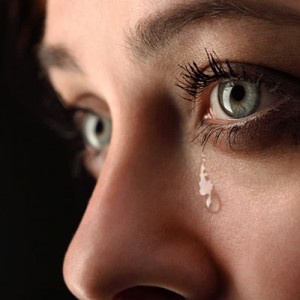Anxiety – What Is It?
Anxiety is a type of emotion in which one feels  overwhelmed, worried or uneasy. Presently, anxiety has different names in western medicine although all of them share certain common attributes.
overwhelmed, worried or uneasy. Presently, anxiety has different names in western medicine although all of them share certain common attributes.
The Symptoms and Signs of Anxiety
- Over worrying/over-thinking
- Sweating
- Feeling overwhelmed
- Tightening of the chest
- Feeling difficulty in breathing properly
- Palpitations
What is the Western Mode of Treatment for Anxiety?
To help deal with anxiety, Western medicine uses anti-anxiety drugs to inhibit the emotion signals going to the brain.
The problem with this is that the root cause of the anxiety is not being addressed, just the symptoms. This usually implies that the problem will come back once you cease taking the drug.
Treating Anxiety with Pain-Free Acupuncture
Acupuncture is one of the most effective, pain-free, and safest forms of treatment for both the symptoms and underlying cause of anxiety. Acupuncturists usually target 3 main organ systems when it comes to treating anxiety. These are the kidneys, spleen and liver.
Kidney Deficiency
The kidneys, according to Chinese medicine are associated with coolness and water in our body. The coolness keeps the heat from rising and causes the mind to relax. Weak kidneys can mean that the coolness is not sufficient enough making the heat rise. When heat goes to the top of our body, it affects the mind and heart resulting in anxiety.
Moreover, kidneys are associated with the feelings of fear which means that when fear rises in us, the kidneys become weak which can result in anxiety.
Spleen Deficiency
A weak or deficient spleen leads to a lesser ability of breaking down the foods that we eat. If the body has a hard time breaking down or digesting foods, it does not produce new quality blood. If there is not enough quality blood in our body, the heart becomes tired and weak which affects the entire body. Consequently, a tired and worn out body makes us more susceptible to feelings of anxiety.
Liver Imbalance
Our cells receive information, nutrients and energy through the liver. This organ is the first to be affected by high/low emotions and stress as well as drug abuse and alcohol. The liver tenses up when we feel stressed out. When it tenses, the flow of information, nutrients and energy start to stagnate.
The organs and cells are not getting the proper amount of nutrients information to operate efficiently which causes our body to become imbalanced. An imbalanced body can make it susceptible to feelings of anxiety.
A person with liver imbalance usually feels all emotionally wound up causing him/her to be easily frustrated and irritated; moreover, the person often tends to suppress it. The bottling up of their emotions causes stagnation and heat resulting in anxiety.
With acupuncture, the heat and stagnation can be resolved and the health of the person starts to improve since the hormones, energy and nutrients are now flowing much better in the body.
Anxiety Acupressure Points
You can apply pressure yourself on certain acupuncture points to address the feelings of anxiety. You should know though that acupressure in no way is an equally effective alternative to professional acupuncture diagnosis and treatment of anxiety that are always different for each person.
Acupressure can be actually an ideal adjunct to acupuncture therapy because it enables you to maintain the benefits derived from acupuncture in between acupuncture sessions. It is a procedure you can perform on yourself and is an excellent adjunct to acupuncture treatments.
Using your finger, apply pressure to the following points for two to three minutes each day or whenever you feel anxious:
Sanyinjiao (sp 6)
Function: to calm the mind, fortify blood and coolness and strengthen stomach/ spleen.
Neiguan (Pc 6)
Function: to calm the mind, clear the head, and clear pain and stagnation.
